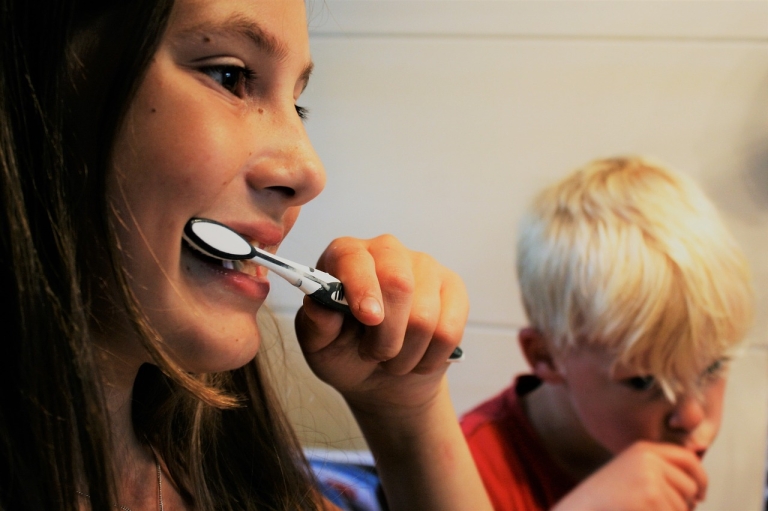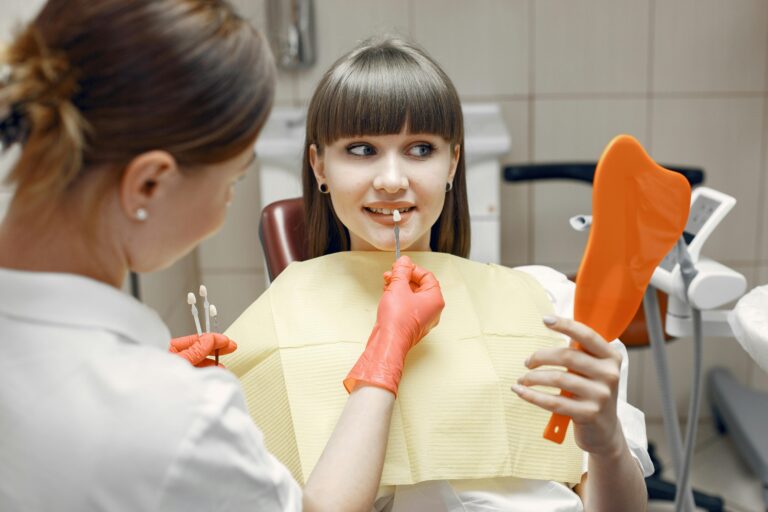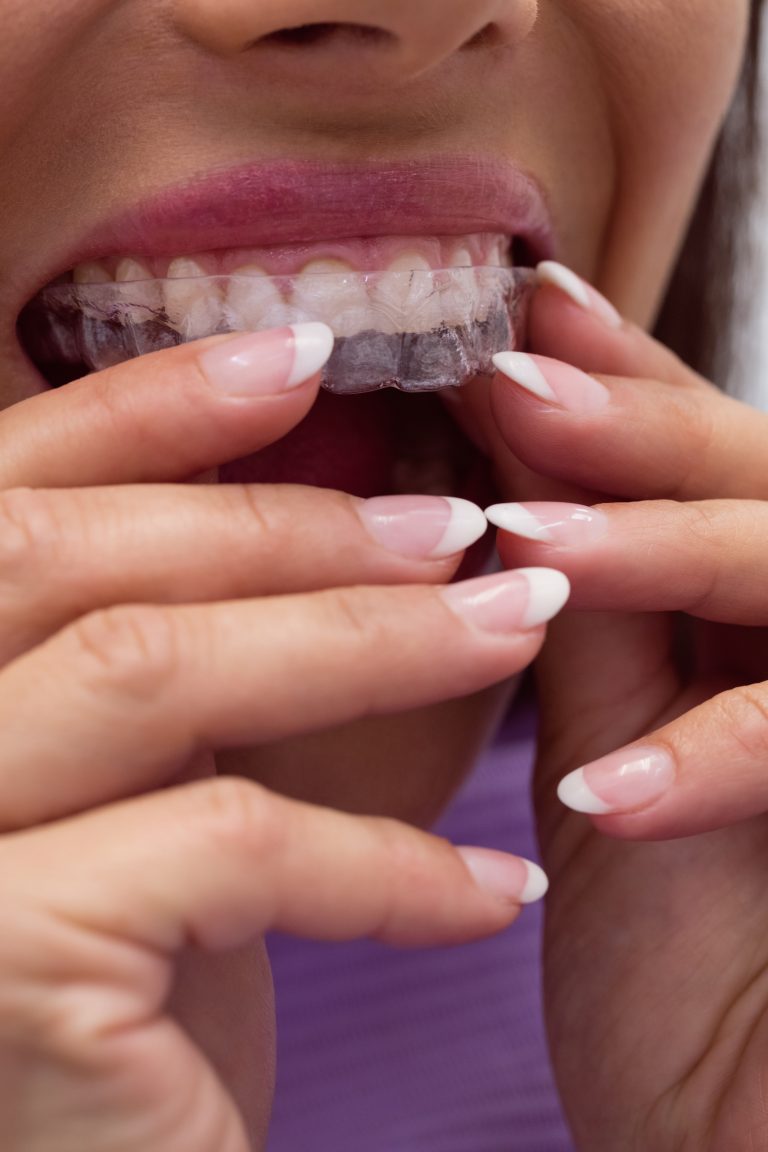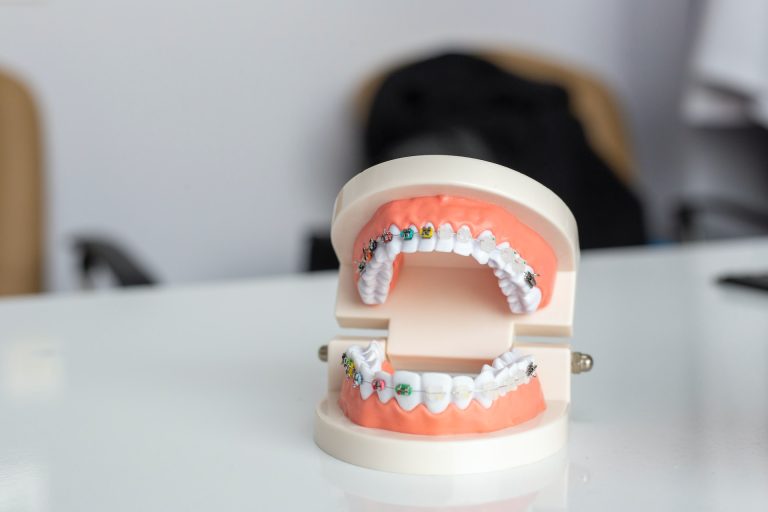Braces can be a bit scary, but don’t worry! This article will help you on your journey. So here goes!
You may feel discomfort after getting your braces fitted. Your teeth may be sore and it could take days for your mouth to adjust. But this is temporary and means your braces are working.
Eating certain foods can be tough. Avoid sticky or hard items like gum or nuts. Go for softer foods that are easy to chew. Brush your teeth after every meal too.
Good oral hygiene is key. Floss and brush regularly to stop plaque from forming. Your orthodontist can give tips to help with oral hygiene.
Jane’s story is a great example. At first she was nervous about her braces. But then she realised lots of people have them too. With time and dedication to her orthodontist’s instructions, Jane had beautiful results.
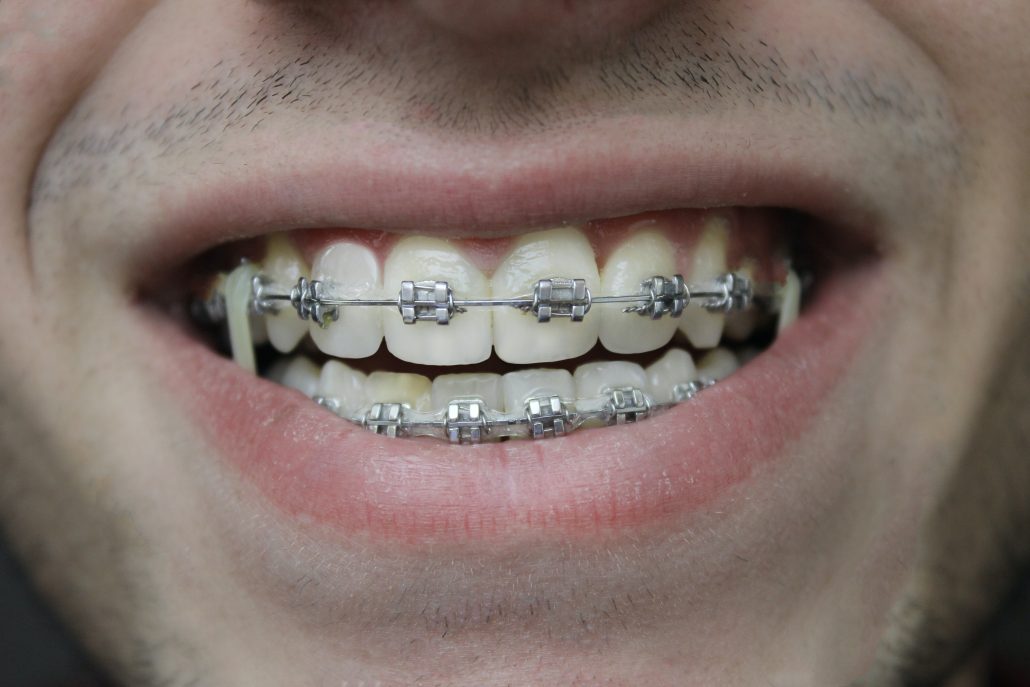
Getting braces: What to expect
Getting braces can be scary, but knowing what to expect helps. Here’s what happens in the first days:
- You may feel discomfort as your mouth adjusts. It normally lasts a few days and can be managed with pain meds or numbing gels.
- Your teeth and gums may be sore as they adjust to the pressure. Eating soft foods and avoiding hard or sticky ones helps. Plus, put wax on sharp edges to prevent irritation.
- Talking might be a bit tough at first. You may lisp when you talk, but it will get better with time.
Good oral hygiene is key when wearing braces. Brush after meals and floss daily to stop plaque buildup and keep your teeth healthy.
Did you know? In ancient times, people tried straightening teeth with metal bands around each tooth. Now, we have more comfortable and effective orthodontic methods.
Adjusting to braces: What to expect
Adjusting to braces can be intimidating, yet understanding what to expect can help ease your worries. Here’s the key stuff you should anticipate during the early days of wearing braces:
- Discomfort: It’s common to have a little soreness and discomfort after getting braces. It’s because your teeth and mouth need time to adapt to the new pressure and tension from the braces. Taking over-the-counter pain relievers and eating soft foods can help soothe this discomfort.
- Irritation: Braces may cause irritation or sores inside your mouth due to the brackets and wires rubbing against your cheeks, lips, or tongue. Use wax provided by your orthodontist to create a protective barrier and ease any discomfort caused by friction.
- Speech changes: Your speech could be affected temporarily as you get used to having braces in your mouth. Pronouncing certain sounds may require adjustment, but with time and practice, your speech will return to normal.
- Food restrictions: For the first few days, it’s best to eat soft foods that won’t put too much pressure on your teeth or damage the braces. Avoid sticky or hard foods that can dislodge brackets or wires, leading to extra visits for repairs.
- Oral hygiene routine: It’s even more important to maintain good oral hygiene with braces. It’s essential to brush properly after every meal or snack using specialized orthodontic brushes recommended by your orthodontist. Flossing between teeth and using mouthwash will also help keep food particles from getting stuck in your braces.
Everyone has a different experience with braces based on their dental structure and treatment plan prescribed by their orthodontist. To make your transition period easier, consider the following:
- Practice proper oral hygiene consistently: Follow the oral care routine suggested by your orthodontist daily to prevent dental issues like gum diseases and tooth decay. Brush and floss properly and frequently for better dental health.
- Be patient: Remember that the initial discomfort and changes in speech or eating habits are only temporary. As your mouth becomes accustomed to the braces, these challenges will gradually disappear. Give yourself time to adjust, and soon you will be more comfortable with your braces.
- Stick to dietary recommendations: Adhering to your orthodontist’s advice on which foods to avoid will protect your braces, ensuring more effective treatment progress. Start with softer foods before eventually reintroducing a broader range into your diet.
- Communicate with your orthodontist: If you have persistent pain, irritation, or any other issues with your braces, don’t be afraid to reach out to your orthodontist for assistance. They are there to answer any questions you have throughout your treatment.
By knowing what lies ahead during the early stages of having braces, you can approach this new phase with confidence. Remember that all the effort put into taking care of your braces now will result in a healthier, straighter smile in the future.
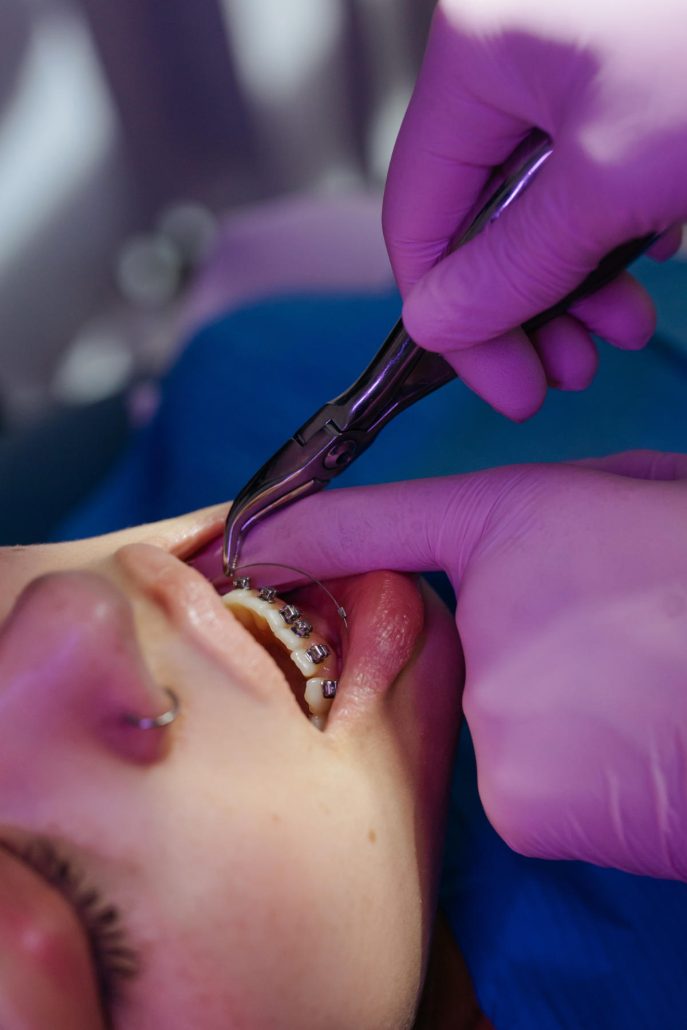
Dealing with common issues
It is common to experience some discomfort when first getting braces. OTC pain relievers can give relief. Irritation or sores may occur in the mouth, but orthodontic wax can help. Soft foods are ideal and hard substances should be avoided. Your teeth and gums may feel sore too, so warm saltwater rinses can help. Investing in special orthodontic brushes makes it easier to clean around the brackets and wires. Speech changes may also happen, so practice speaking aloud to get over it.
Everyone has a unique experience with braces. So, it is important to talk openly with your orthodontist about any difficulties.
Did you know, archaeologists in ancient Egypt discovered mummies with metal bands around their teeth, resembling braces? This shows how people have been striving for straighter teeth since long ago.
Though dealing with common issues during the first days of braces may seem challenging, it is just a phase. Stay positive and follow your orthodontist’s advice for the best results.
Tips for managing the first days of braces
When it comes to braces, there are a few tips that can make the process smoother. Here’s a guide to help you out:
- Be prepared. Get soft foods like yogurt, mashed potatoes and smoothies. Easier to eat with braces.
- Take it slow. Your mouth might feel sore. Small bites and chew slowly.
- Use pain relief. Over-the-counter meds can help. Ask your ortho for advice.
- Practice good oral hygiene. Brush and floss more. Use a soft-bristle toothbrush.
- Avoid hard and sticky foods. They can damage or get stuck in braces. Say no to popcorn, gum and caramel.
- Stay positive. You’re on a journey to a beautiful smile! Commit to good oral health.
Everyone’s experience is different. Keep an open mind and ask your ortho if you have questions. One person I know found it hard to eat at first due to soreness. But, it was exciting to see their teeth shift over time. It was a reminder of their commitment to a beautiful smile.
Patience and perseverance are key to managing the first days of braces. With the right attitude and proper care, you’ll be on your way to a straighter and healthier smile.
Conclusion
Wrapping up our chat about the start of braces, recall that everyone’s experience is one-of-a-kind. It begins with some distress and changes, but it’ll all be worth it in the end!
When you first get your braces, you may feel tenderness and soreness in your teeth and gums – this is natural and can be handled with over-the-counter pain relief and eating soft food. Be understanding of yourself while your mouth conforms to the braces.
In addition, superb oral hygiene is important during this period. Brushing and flossing around your braces is essential to keep plaque and cavities away. You’ll get special tools such as interdental brushes or floss threaders from your orthodontist to aid you manage the brackets and wires.
Now, let me tell you a story that demonstrates the influence of braces. A good friend of mine was embarrassed of her crooked teeth. She chose to get braces in her late twenties, even though she was worried about her appearance while wearing them. Nevertheless, she soon realized that the improvements in her smile outweighed any awkwardness or short-term trouble she faced. Now, she shows off her perfectly aligned teeth proudly and thanks her braces for increasing her self-confidence!
So remember, the early stages of braces may have some difficulties, but they are only the beginning of an amazing journey to get a confident smile. Accept these early adjustments knowing that in the end, you will be happier and more self-assured than ever!
Frequently Asked Questions
FAQs: What to expect first days of braces?
Q: Are braces painful?
A: Initially, you may experience soreness or discomfort as your mouth adjusts to the braces. Over-the-counter pain relievers can help ease the discomfort. Within a few days, your mouth will adapt, and any pain should subside.
Q: Can I eat normally with braces?
A: While it may take a few days to get used to eating with braces, you can still eat most foods. However, it is best to avoid hard, sticky, and chewy foods that can damage or get stuck in your braces.
Q: Will speaking be difficult with braces?
A: Initially, speaking may feel a bit different as your tongue and lips adjust to the braces. However, with practice, you will quickly adapt, and your speech will return to normal.
Q: How long does it take to get used to braces?
A: It varies from person to person, but most individuals adjust to wearing braces within a week or two. It may take a little longer to become completely accustomed to speaking and eating with braces.
Q: Do braces cause mouth sores?
A: While braces themselves do not cause mouth sores, they can sometimes cause irritation or rubbing against the cheeks or lips, leading to sores. Orthodontic wax can be applied to the brackets to prevent this or provide relief.
Q: How often should I brush my teeth and braces?
A: It is crucial to brush your teeth and braces after every meal and snack to prevent food particles from getting trapped. Use a soft-bristled brush and a fluoride toothpaste, and pay attention to cleaning around the brackets and wires.
